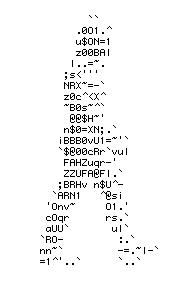Gillmor, Jarvis and Rosen : Gatekeepers No More
Anlässlich des O'Reilly Digital Democracy Teach-In (vom 9.Februar 2004) diskutierten Dan Gillmor, Jeff Jarvis and Jay Rosen über "Gatekeepers No More" - resp. die Rolle der Journalisten im Wandel:
"Journalists think … we need to give people information so they can participate. But it is more likely that if people participate they will seek information. … Activity comes first, and journalists in this country made a big mistake long time ago when without realizing it they began not to care if people got engaged with the information, they cared only if they received the information.
This is a key concept that must be understood by newspapers, and especially by newspaper editors, if they are to retain their community relevance and authority. Interest is directly relational to involvement. Journalists need to follow more than lead. Truly listen to your community, and the content that will engage them will be clear.
Die transscribierte Präsentation gibt's hier.
Interessant in diesem Zusammmenhang auch der Kommentar von Tom Mangan, der wichtige Punkte ins richtige Licht rückt:
Nobody's listening to this stuff except other people like me, and like them. It's the echosphere of the blogosphere.
The echo is constant: the people who edit the news we consume are dullards who cannot see the wonder of blogs. They are blind to the magic of participatory journalism, the nirvana of two-way communication between newsies and their audience. (....)
In our preoccupation with the "out there" audience we've forgotten the "in here" one. You know, the people we keep telling, "wake up and listen to us, we get it." How come they haven't glommed onto the fact that blogs represent a logical online-news distribution model? I think it's because instead of talking to them, we've been talking to ourselves. We've been big on telling them to listen up, but have we been listening to them?
There is a deep, abiding resistance to blogging in most newsrooms, and it's something beyond the aversion to change. (....) In any case, if we want blogging to gain traction in newsrooms, we have to go deeper than the "they don't get it" bit that's sustained us thus far. The "out there" audience knows what's wrong but is powerless to fix it. The "in here" audience has suspicions of its own. They're not the only ones who have to listen up.
[Via PrintsTheChaff ]
"Journalists think … we need to give people information so they can participate. But it is more likely that if people participate they will seek information. … Activity comes first, and journalists in this country made a big mistake long time ago when without realizing it they began not to care if people got engaged with the information, they cared only if they received the information.
This is a key concept that must be understood by newspapers, and especially by newspaper editors, if they are to retain their community relevance and authority. Interest is directly relational to involvement. Journalists need to follow more than lead. Truly listen to your community, and the content that will engage them will be clear.
Die transscribierte Präsentation gibt's hier.
Interessant in diesem Zusammmenhang auch der Kommentar von Tom Mangan, der wichtige Punkte ins richtige Licht rückt:
Nobody's listening to this stuff except other people like me, and like them. It's the echosphere of the blogosphere.
The echo is constant: the people who edit the news we consume are dullards who cannot see the wonder of blogs. They are blind to the magic of participatory journalism, the nirvana of two-way communication between newsies and their audience. (....)
In our preoccupation with the "out there" audience we've forgotten the "in here" one. You know, the people we keep telling, "wake up and listen to us, we get it." How come they haven't glommed onto the fact that blogs represent a logical online-news distribution model? I think it's because instead of talking to them, we've been talking to ourselves. We've been big on telling them to listen up, but have we been listening to them?
There is a deep, abiding resistance to blogging in most newsrooms, and it's something beyond the aversion to change. (....) In any case, if we want blogging to gain traction in newsrooms, we have to go deeper than the "they don't get it" bit that's sustained us thus far. The "out there" audience knows what's wrong but is powerless to fix it. The "in here" audience has suspicions of its own. They're not the only ones who have to listen up.
[Via PrintsTheChaff ]
Cyberwriter - 24. Feb, 14:33 - Public Journalism
0 Kommentare - Kommentar verfassen - 0 Trackbacks





















Trackback URL:
https://cyberwriter.twoday.net/stories/149478/modTrackback